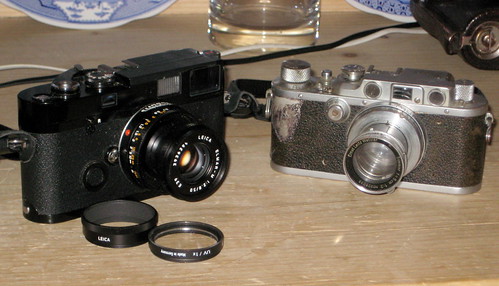
I have been taking photographs since I was a teenager, when I started with a Box Brownie taking 8 negatives on 120 roll film. These had a little frosted glass viewfinder with the image projected onto it with a lens and a mirror. You held the camera at waist level and peered into the viewfinder, using your hand to keep the screen shaded. It was possible to take a reasonable picture with them but they were never sharp.
My first proper camera was a Selfix 820 with a Ross Xpres lens, also taking 8 pictures on 120 film, made in 1959. At that time, 35mm film was of relatively poor quality and grainy. The Selfix pictures were extremely sharp. The Selfix 820 was a folding camera and quite compact. It is very well made and robust. When the camera is opened up for use, it is very rigid and the lens is held in position positively. The main drawback of the model I had bought were a poor and inaccurate viewfinder and the lack of a coupled rangefinder. After a couple of years I replaced it with a Zeiss Super Ikonta 531/2 with a Tessar lens probably dating from 1939. It is a refined design, but the lens positioning is not positive. The better viewfinder and coupled rangefinder made it easier to use but the pictures were “soft”.
In 1970 I purchased my first 35mm camera, a Leica M2, with 50mm and 90mm Elmar lenses. This was compact, easy to use and took sharp pictures. Its limitations were that it was not good for close-up work and I felt that a longer telephoto lens would have been useful. The great merit of the M2 is that it is robust and the viewfinder provides a large bright image including a field of view outside the projected frame.
In 1977 I supplemented the Leica with a Nikon F2 and over the years obtained a selection of lenses. The following year I disposed of the Leica and traded it in for a Linhof technical camera with ground glass screen, for architectural photography.
After about 1980, most of my photography was for work, which involved a lot of it. I used both the Nikon and the Linhof. My work was with a London borough and when I retired in 1991 the material was transferred to the local history library.
Kommentarer